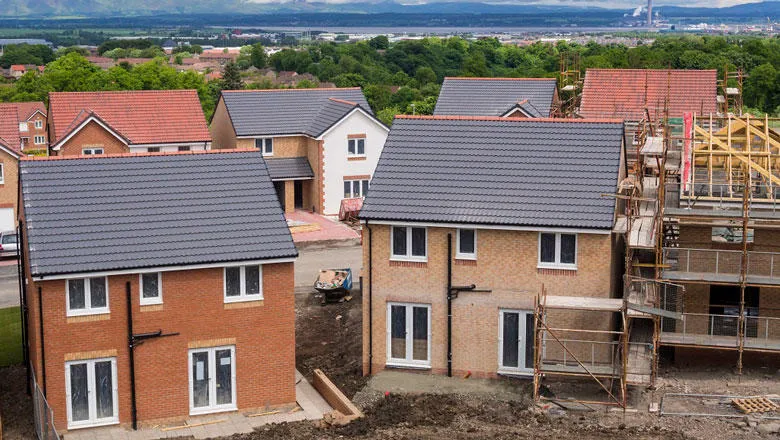Social housing in the UK is in a state of crisis. We need to put the emphasis back on housing as an essential human need, while also addressing the dramatic impact on the environment. This means raising a critical question: why are we continuing building new, and for whom?
Dr Anna Pagani, lead author and a Senior Lecturer in Engineering
01 May 2025
Pausing housebuilding could counter loss of social homes and associated costs
Halting the building of new homes could help to address the dramatic decrease in the number and share of social homes, by reallocating resources to upkeep the existing housing stock and preventing its demolition.

Halting the building of new homes could help to address the dramatic decrease in the number and share of social homes, by reallocating resources to upkeep the existing housing stock and preventing its demolition.
Pausing the construction of homes could help disrupt the growth-driven mechanisms that the provision of social homes currently depends on, such as demolition, resident displacement, densification, and speculative investment – all of which have negative consequences on residents’ health and well-being, on housing associations’ ability to maintain and repair their housing stock, and on the environment.
These are the findings from a new study featured in a special issue of Built Environment and led by researchers at King’s College London, the University of Otago, University of Amsterdam, and University College London, who are calling for a freeze on new housebuilding.
The study is the first of its kind to explore the extent to which a halt would be an effective way of addressing the shortage of good quality social housing. Researchers worked with four large housing associations in England, to assess the feasibility, challenges and opportunities of this as a policy.
The researchers used a ‘systems thinking’ approach for the study, which involved focusing on the broader picture of the English social housing sector, to map the interconnected issues.
The maps were then used to formulate hypotheses for how pausing housebuilding could affect the dynamics that are eroding the provision of good quality social housing.
“Systems thinking helps to see the part of the iceberg that hides underwater when we think of issues such as the lack of affordable housing, disrepair, maladministration; to examine them as a set of interconnected factors, shedding light on unintended consequences of the many policies that have been implemented so far,” explained Dr Pagani.
In a second stage, they invited strategic participants from the four housing associations to do a similar exercise, reflecting on opportunities and obstacles.
The shortage of social housing is a fundamental element of the UK housing crisis. Decades of policies endorsing the privatisation and marketisation of social housing provision have seen the social housing sector in England decrease from 31% to 16% of the total housing stock.
Housebuilding targets are central in political agendas, with the current Labour Government setting themselves a target of 1.5 million new homes over the term of this government. However, there are already 1.5 million unoccupied dwellings in England.
Professor Alex Macmillan, Professor in Environmental Health at University of Otago, New Zealand, said: “Housing is an important building block of health, with poor quality and unaffordable housing a driver of multiple intergenerational health inequalities.
“While many argue that the answer to these problems is to build more new houses, our research sheds light on what influences construction. The current market-driven model doesn’t lead to the health and social benefits expected. Instead, we need to focus first and foremost on all the houses that already exist if we’re serious about addressing housing injustices.”

